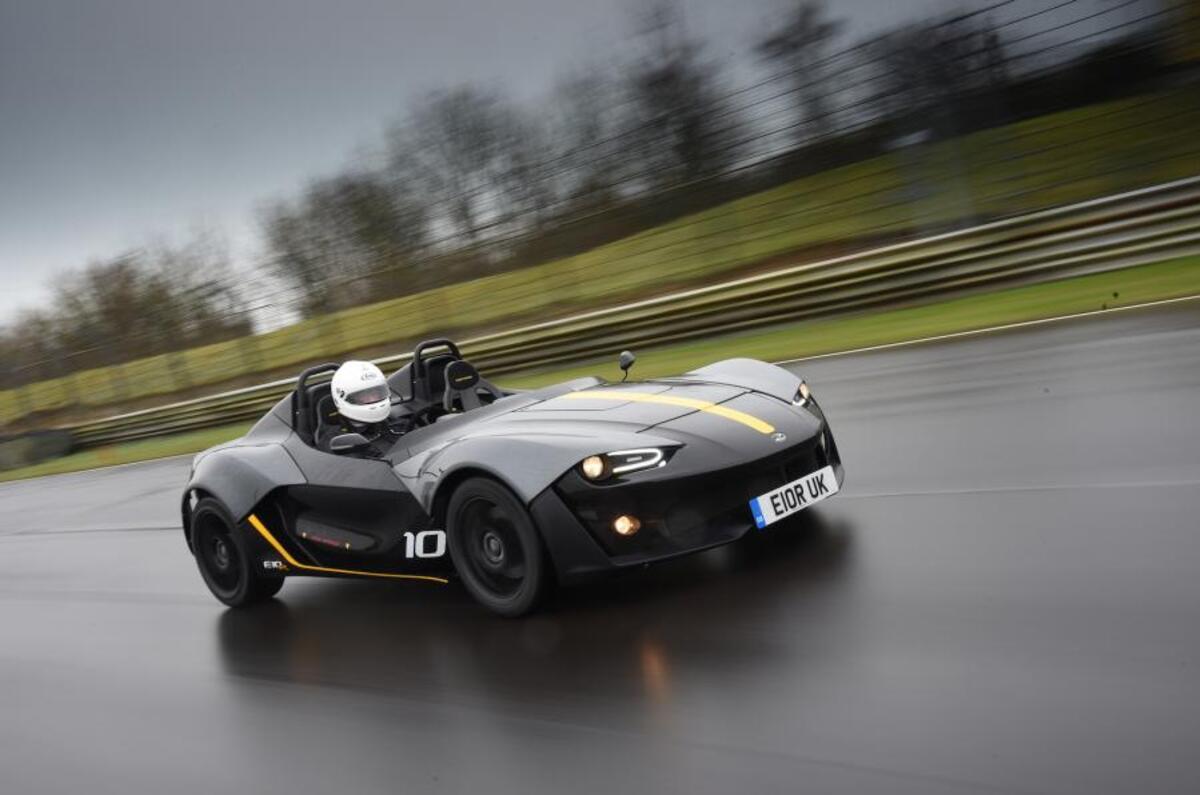A Zenos hybrid model based on the E10 R is being considered, and Zenos is working on a hybrid powertrain system that could find its way into its production sports car in the future.
The news of the hybrid model comes alongside Zenos' celebration of its 100th customer collection, and the news that its remaining build slots for the rest of 2016 have been taken.
Zenos has gone into administration - read more here
The Norfolk-based sports car company has found considerable acclaim for its range of Zenos E10 lightweight machines. It has now received a government grant to build a prototype hybrid version of the E10 R, with a manual gearbox, as part of a nine-month research and development project.
The funds, worth a total of £250,000, come from Niche Vehicle Network’s SME & Supply Chain Development competition, which gives grants to projects within the low-volume vehicle industry.
Zenos will work alongside battery management firm Hyperdrive Innovation, transmission specialists Vocis Driveline Control and engineering company Cosworth to research ways of adapting Ford’s Ecoboost engine into a hybrid system. The production E10 range is currently powered by the 2.3-litre Ecoboost unit.
Mark Edwards, Zenos’ managing director, said the firm didn’t have a firm hybridisation strategy, but was aware that increasing emissions regulations meant niche vehicle manufacturers had to look to the future to ensure they comply with targets.
So far the lightweight nature of Zenos’ lineup has meant combustion engine power has been able to meet all the targets, but that is unlikely to continue.
Zenos is also considering adding E11 and E12 models to its lineup - read more here
“It's something that we would be foolish to ignore,” Edwards said. “This is an R&D project, so it's our first step in evaluating what options might be suitable for future vehicles.
“A lot of people have looked at pure EV, but we like it [hybrid] because it still has the smell, feel and noise of a traditional gasoline solution but does offer the efficiency benefits. Emissions targets are only going to one way.”
The complexity of modern hybrid systems mean that simply using a full Ford system isn’t viable, Edwards said.
“We can’t just use a Mondeo ECU for example, because it’s embedded with so many systems within the Ford car. You have to start developing your own control systems to work with the hardware, be it an engine or a battery system.”
Get our full review of the Zenos E10 R here
Edwards stressed the project wasn’t a firm commitment to put a hybrid Zenos into production.
“We’re aware that there are challenges five, 10, 15 years out that we have to meet and we have to start looking at them,” he explains. “We’re not saying that the next Zenos will be a hybrid vehicle. It could well be the case, but it’s not a signal of a particular intention.
“If it does work, and it’s economically viable, then it could give us a path to further longevity, but it doesn’t transform our brand position or volume aspirations.”




Add your comment